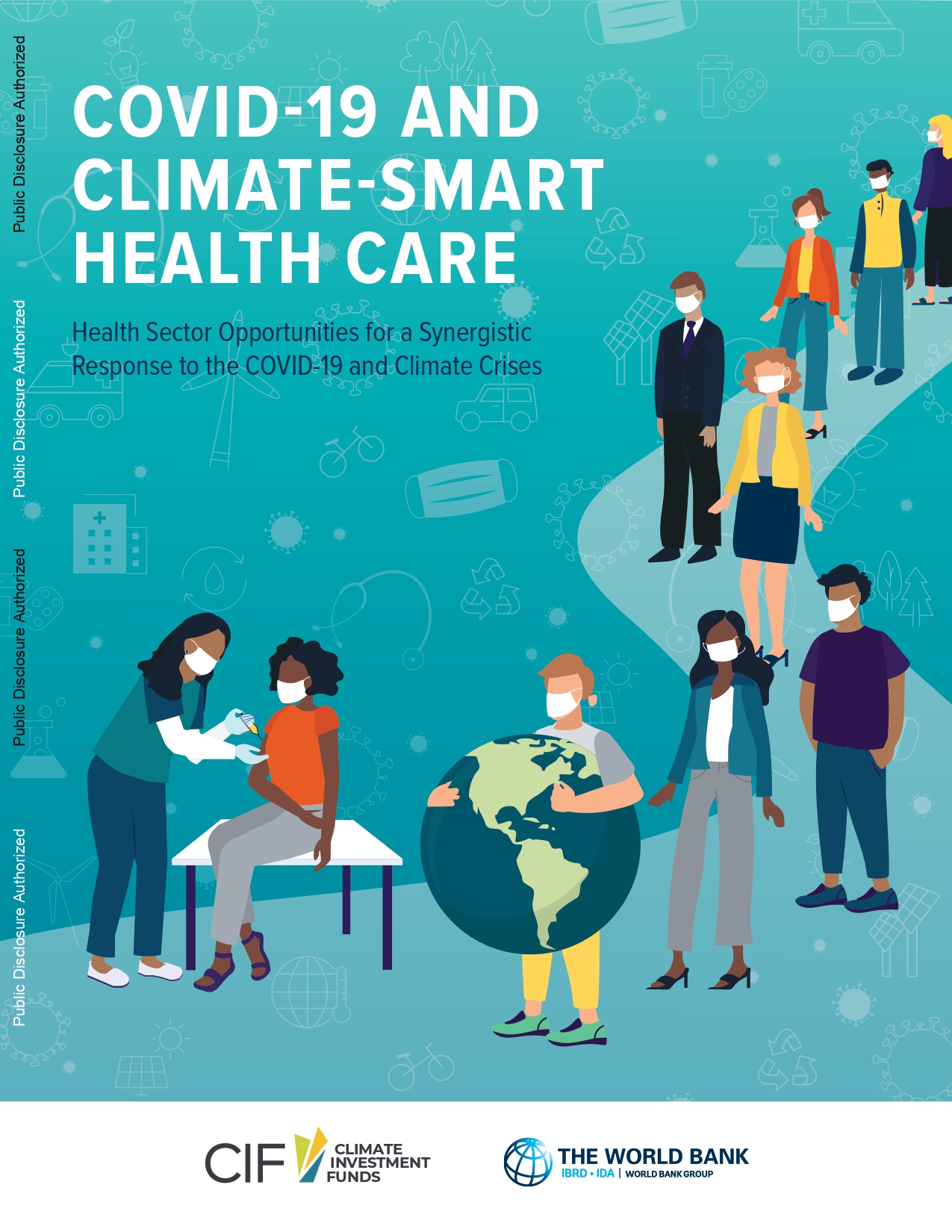COVID-19
The road to recovery and transformative climate solutions
COVID-19 response and recovery investment needs to advance climate-smart health care.
The ongoing COVID-19 pandemic and our societies’ paths to recovery underscore the centrality of health and health care in disaster preparedness while starkly highlighting how low-income communities and countries are often most impacted by global crises. The profound inequality in the distribution of COVID-19 vaccines is a glaring example of this inequity.
COVID-19 response and recovery investment need to advance greater equity for health access, along with a level of health care resilience underappreciated before the pandemic. It also underscores the imperative of accelerating climate action worldwide.
The unprecedented international effort to combat COVID-19 provides an opportunity for health care to put into operation climate-smart health care solutions that concurrently enhance health system resilience to both climate change and future pandemics. This approach can also help reduce the health care sector’s climate footprint—now contributing 4.4% of global greenhouse gas (GHG) emissions—ushering in low-carbon solutions that help contribute to universal health coverage.
As such, COVID-19 response and recovery provide an opportunity to take on the pandemic and the climate crisis in tandem. We can build forward better and fairer while investing in resilient and zero emissions health systems as disaster preparedness and prevention strategy.
COVID-19 and Climate-Smart Health Care: Health Sector Opportunities for Synergistic Response to the COVID-19 and Climate Crises
A new report from the World Bank, Health, Nutrition and Population Global Practice, coauthored by Health Care Without Harm, and supported by the Climate Investment Funds (CIF) focuses on how low-carbon and climate-resilient health solutions present opportunities to tackle the converged crises of the current pandemic, those in the future, and climate change.
The report examines how vulnerable communities– the elderly, people with preexisting or chronic conditions (especially related to respiratory illnesses), ethnic minorities, indigenous people, and those experiencing poverty are disproportionately impacted by COVID-19 and climate change. It also looks at how the two crises laid bare the chronic capacity deficiencies in managing these public health threats.
Despite these immense challenges, the report offers synergistic interventions for low- and middle-income countries to enhance health system resilience during the COVID-19 crisis, future pandemics, and climate change impacts. Many of these interventions can also help limit health sector emissions by decoupling progress toward Universal Health Care (UHC) from global environmental impacts. Case studies from seven countries demonstrate how climate-smart solutions benefited health system responses to COVID-19 and climate disasters. Health Care Without Harm produced case studies from Colombia, India, Nepal, and the Philippines.
The report can help guide ongoing and future activities and investments for pandemic mitigation to facilitate climate-smart UHC. The report is also for leaders and operational teams in multilateral development banks (MDBs) and other development finance institutions, particularly those in the areas of health, nutrition, and population, and nongovernmental organizations, ministries of health and health agencies, and other policymakers committed to building back better and fairer.
“The health sector and everyone that supports it, have an unprecedented opportunity to integrate covid recovery, decarbonization and resilience as mutually reinforcing parts of the transformation required to be truly fit and ready for our healthy future,” said Sonia Roschnik, International Climate Policy Director, Health Care Without Harm

The choice is clear. We need to quickly embrace and deploy transformative climate solutions as integral to the road to recovery from the COVID-19 and climate emergencies.
We can learn from health systems worldwide that have deployed various climate-smart solutions. We can find lessons in how they responded to the pandemic and built both pandemic and climate resiliency.